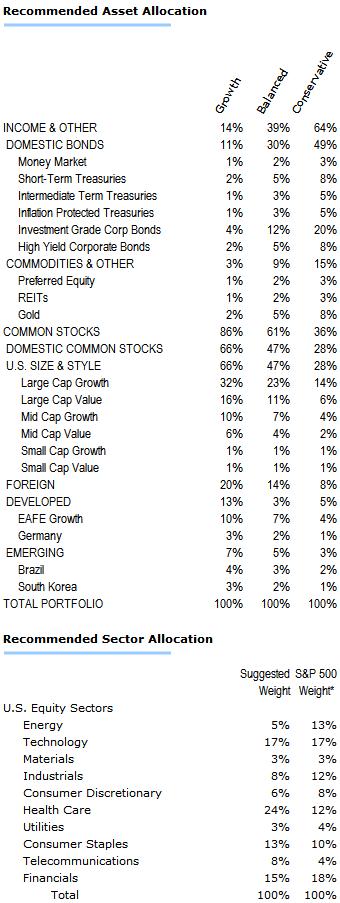No Change in Portfolio Strategy Despite Treasury GSE Action
Now that the Treasury has made clear it's plan of action for
the Government Sponsored Entities (GSEs), we see little in
it's construction that forestalls the ongoing housing
recession, prevents rising joblessness, or reverses the
recessionary tendencies which have become even more
entrenched in recent months. While the action gives
comfort to agency debt-holders that the United States'
government will likely make good on all GSE debt
obligations, there remains significant questions about the
long-term role that the GSEs will play in credit markets
once the 2008-2009 period passes.
In addition, neither the equity injections, credit lines,
purchase arrangements, or temporary increases in portfolio
limits offer any guarantee that credit terms will be changed
to make mortgages more available to potential homebuyers
than they currently are. Therefore, there is no reason
to expect a quick and material improvement in the imbalances
that continue to confront real estate markets.
In fact, over the short-run, the plan could have the
negative effect of making credit even tighter as the
government sponsored entities are forced to comply with the
new set of standards that will emerge under conservatorship.
Looking beyond the next year, the call to materially shrink
the entities in the post-2010 period would profoundly change
the structure of banking and credit markets. Without
an alternative structure in place, the pace of credit
creation would likely slow and the cost of credit would
likely rise. Unfortunately, the Treasury's
recent actions stop short of offering a vision of what such
a system may look like and, instead, leaves that debate to
the Congress and the next administration while, at the same
time, leaving the GSEs intact as functioning entities.
We welcome the action as a first step to reform, but are
making no change to our recommended
tactical asset allocation in response to the Treasury's
recently announced GSE action.
Instead, we remain focused on monitoring changes in the five
key indicators which we believe are most important as it
relates to portfolio decisions and the outlook for the
economy. By way of reminder, these five indictors have
been and remain:
D
Housing
(continuing oversupply, prices falling)
D
Credit
(shrinking
availability and demand for loans)
D
Corporate profits
(peak margins,
declining level)
D
Private sector employment
(mounting job losses)
C
Pricing of risk in financial markets
(risk better priced versus a year ago)
 |
Past Commentaries
July 31, 2008
Quick Take on GDP Report
More
July 21, 2008
Valuation Are Better, But Markets Are Not Out of the
Woods
More
May 20, 2008
Buy the Dips
More
March 10, 2008
Investing During Recession
More
January 22, 2008
Global Sell-off
More
December 27, 2007
Outlook 2008
More
December 7, 2007
NBER President Raises Recession Concerns
More
November 28, 2007
Equity Risk Heightened - Allocation Remains Defensive
More
September 25, 2007
After the Rate Cut
More
July 30, 2007
The Case For Growth
More
June 15, 2007
Data Affirms Tactical Asset Allocation Posture
More
March 19, 2007
Cutting Earnings And Equity Target
More
| |
To unsubscribe, please click here.
Company Name, Address and Contact Details
The information contained herein has been prepared from sources believed to be
reliable but is not guaranteed by us and is not a complete summary or statement
of all available data, nor is it considered an offer to buy or sell any
securities referred to herein. Opinions expressed are subject to change without
notice and do not take into account the particular investment objectives,
financial situation, or needs of individual investors. There is no guarantee
that the figures or opinions forecasted in this report will be realized or
achieved. Employees of Stifel, Nicolaus & Company, Incorporated or its
affiliates may, at times, release written or oral commentary, technical
analysis, or trading strategies that differ from the opinions expressed within.
Past performance is no guarantee of future results. There are special
considerations associated with international investing, including the risk of
currency fluctuations and political and economic events. Investing in emerging
markets may involve greater risk and volatility than investing in more developed
countries. Due to their narrow focus, sector-based investments typically exhibit
greater volatility. Small company stocks are typically more volatile and carry
additional risks, since smaller companies generally are not as well established
as larger companies. Property values can fall due to environmental, economic, or
other reasons, and changes in interest rates can negatively impact the
performance of real estate companies. When investing in bonds, it is important
to note that as interest rates rise, bond prices will fall. High-yield bonds
have greater credit risk than higher quality bonds. The risk of loss in trading
commodities and futures can be substantial. You should therefore carefully
consider whether such trading is suitable for you in light of your financial
condition. The high degree of leverage that is often obtainable in commodity
trading can work against you as well as for you. The use of leverage can lead to
large losses as well as gains. Indices are unmanaged, and you cannot invest
directly in an index.
Stifel, Nicolaus & Company, Incorporated | Member SIPC & NYSE |
www.stifel.com |